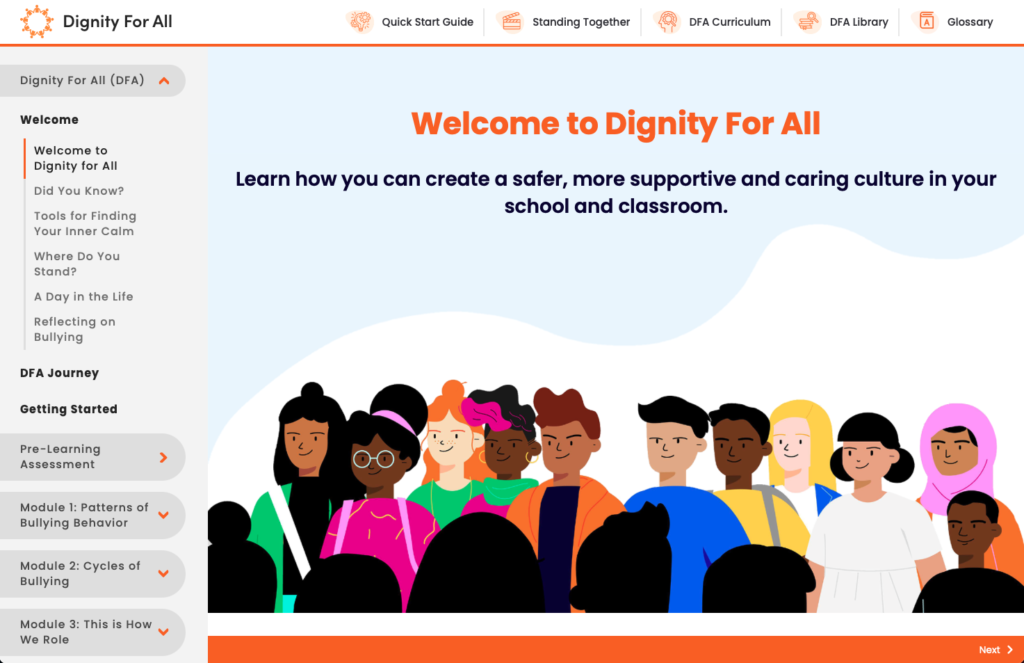Dignity for All: Safe and Supportive Schools
Dignity for All (DFA) is a digital learning tool with wrap-around services that prevent bullying and discrimination in schools and help shape a generation of kinder, more empathic students through social and emotional development.
DFA teaches students how to reduce and prevent harmful behaviors by acquiring skills to become an Upstander instead of a Bystander, creating a culture and community that is safe, inclusive and restorative while exceeding ELA and Common Core State Standards.
By transforming schools into safe and welcoming spaces for all students, DFA fosters empathy and an inclusive culture of trust that prevents bullying and cyberbullying behavior from occurring in schools. Rooted in neurobiology, DFA trains students to address bullying behavior in storytelling, role-playing, and critical reflection with their peers; and become Upstanders for safer, more supportive school communities.
DFA Upstanders set goals for understanding different cultures and beliefs, repairing harm caused by bullying and discrimination, and transforming how students, parents and administrators treat one another by building trust.

